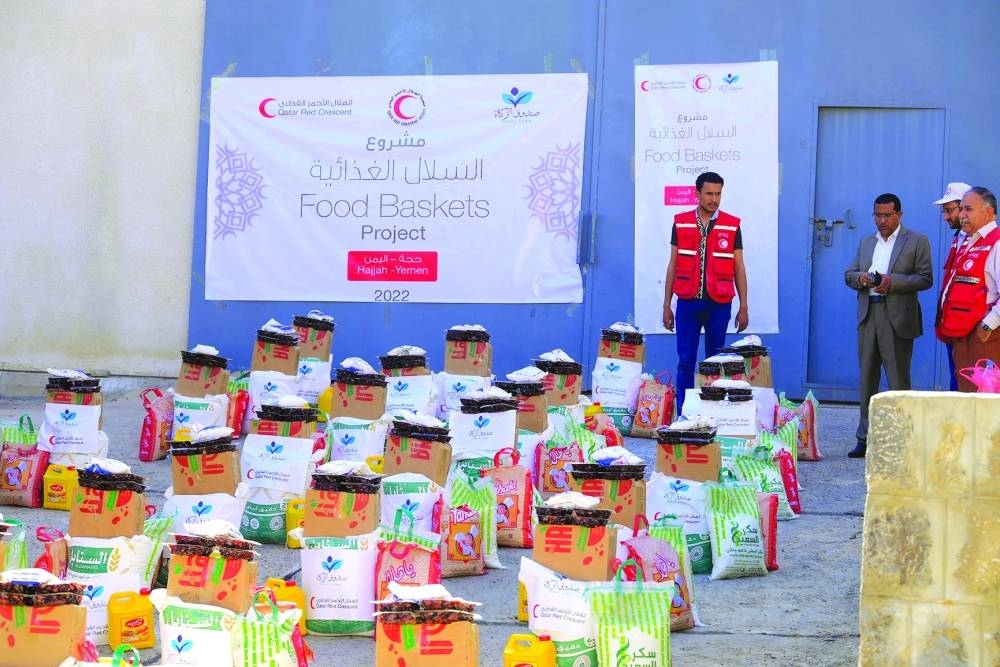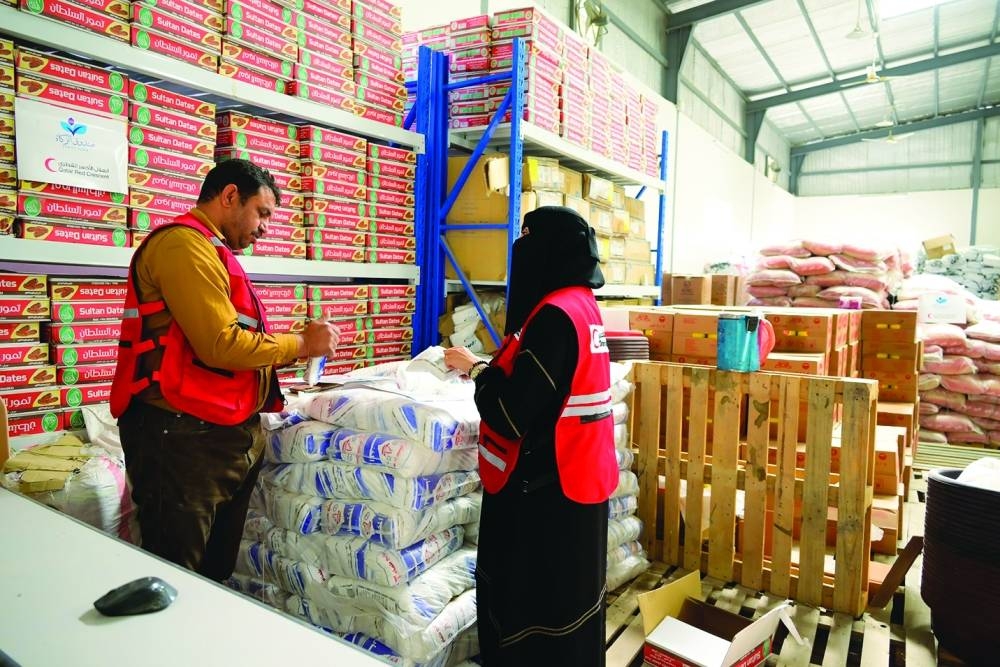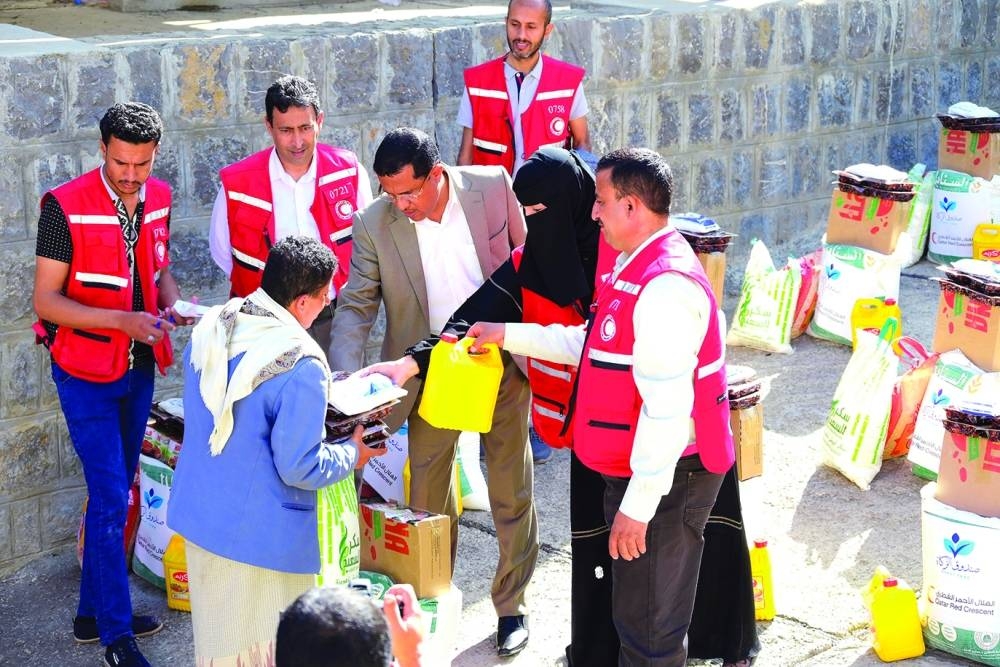In partnership with Yemen Red Crescent Society (YRCS), Qatar Red Crescent Society (QRCS) has initiated a project to provide food parcels for poor families in eight governorates of Yemen. At a cost of $609,377 (QR2,511,000), the project is funded by the Ministry of Endowments and Islamic Affairs’ Zakat Fund. In total, 7,560 food parcels, each containing 61kg of food staples like flour, rice, sugar, dates, vegetable oil, salt, and canned beans, will be distributed to 52,920 beneficiaries in Amanat Al-Asimah, Aden, Dhale, Lahij, Taiz, Al-Hudaydah, Marib, and Hajjah.
So far, 4,000 food parcels have been distributed in Hajjah, Lahij, Marib, and Dhale, with a special focus on families with jobless displaced people, female breadwinners, widows, orphans, disabilities, and older persons. In a statement, Omar al-Samati, advisor to Lahij Governor for Organisations Affairs, said: “We started to distribute 1,000 food parcels to the internally displaced people (IDPs) and host community in Tuban District, Lahij. This support is very important, especially with the onset of winter, which brings more needs. I would like to thank Qatar’s Zakat Fund for this humanitarian donation, and I hope that our brothers at QRCS would intensify their interventions these days, to meet the enormous needs in the areas of food, health, education, water, and livelihoods."
Allan Ali Fadayel, director-general of the Supreme Council for the Management and Coordination of Humanitarian Affairs (SCMCHA) in Hajjah, said: “I would like to thank QRCS, who are there for those in need. They responded to SCMCHA’s appeal in the face of disasters in the governorate. Today, YRCS is distributing 1,000 food parcels in Hajjah District, which will help alleviate the suffering of IDPs and affected people.
“I am grateful for this intervention and call upon QRCS to redouble efforts and expand its activities. The camps are in appalling conditions. About 28,000 families need assistance. There are families that cannot afford the slightest needs of their children, and some of them struggle to get just one meal per day”.
According to the World Food Programme (WFP), the food shortage in Yemen has sharply exacerbated to unprecedented rates, exceeding 40% in 19 governorates. WFP’s latest survey considered these figures “alarming and a looming disaster”, highlighting many internal and external factors that cause food insecurity to persist, outing millions of lives at risk.



